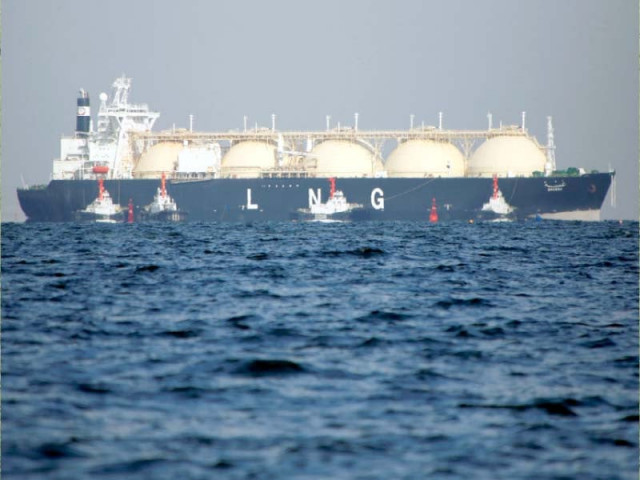Top LNG producer asks US to drop pollution rule
Says limits on emissions will endanger efforts to ramp up supplies to Europe

Cheniere Energy Inc has asked the Biden administration to exempt it from limits on emissions of cancer-causing pollutants, arguing they would force the top US exporter of liquefied natural gas (LNG) to shut for an extended period and endanger the country’s efforts to ramp up supplies to Europe, according to documents reviewed by Reuters.
The request imposes an uncomfortable dilemma on President Joe Biden’s administration as it tries to balance efforts to slash pollution from the fossil fuel industry against promises to help European allies cut energy ties with Moscow over its invasion of Ukraine.
Denying Cheniere could reduce America’s LNG exports for months or years, while granting its request would mean ongoing emissions of toxic pollutants into poor and minority neighbourhoods Biden has vowed to protect.
Texas regulators have already given Cheniere’s massive LNG plant on the outskirts of the Gulf Coast city of Corpus Christi a pass for overshooting emissions limits on other pollutants, according to previous Reuters reporting.
The request also reflects a huge financial vulnerability for Cheniere and its shareholders at a time it has been enjoying increased sales and a rising stock price.
At issue is a rule under the US Clean Air Act called the National Emissions Standards for Hazardous Pollutants (NESHAP), which imposes curbs on emissions of known carcinogens like formaldehyde and benzene from stationary combustion turbines.
The Environmental Protection Agency (EPA) announced in February that starting in August, the rule will apply to two types of gas-fired turbines that had been left out of the regulation for nearly two decades.
Gas-powered turbines emit formaldehyde and other dangerous pollutants through a chemical transformation that occurs when methane is superheated.
Around 250 US gas turbines will be subject to the rule, according to an EPA list that showed Cheniere is the only LNG company that uses these type of turbines and whose facilities will be impacted.
The Houston-based company, which accounts for around 50% of US shipments of the super-cooled fuel, told the EPA in a series of emails this spring that its two LNG facilities in Louisiana and Texas use a unique turbine design that cannot be easily equipped with pollution controls.
“The design of Cheniere’s LNG terminals is complex, and the subject turbines are located on elevated pedestals with limited space for installing control equipment,” Cheniere’s law firm Bracewell said in a letter emailed to EPA Administrator Michael Regan on March 8.
“Potentially imposing significant costs and operational disruption on the US LNG industry at the same time the administration is focused on Europe’s strategic need to break its reliance on Russian gas is counterproductive,” it said.
A separate Cheniere email dated March 9, sent to other EPA officials, said design and engineering work to evaluate the feasibility of retrofitting all 62 turbines at its facilities would likely take “several years”, making it impossible to meet the federal pollution standard on time.
The company asked the EPA to reverse its decision to subject gas-fired turbines to the NESHAP rule, or exempt the specific design used by Cheniere, according to the documents.
Company representatives later met with senior EPA staff, including Principal Deputy Assistant Administrator Joseph Goffman and Deputy EPA Administrator Janet McCabe, to discuss the issue, according to the documents.
The EPA confirmed that Cheniere, through its law firm Bracewell, had made the request for relief from the regulation and that agency staff and officials met with the company in March and April to discuss it.
“At this time, we have not made a decision to lift the stay or issue an exemption,” the EPA said in a statement.
Cheniere’s request could carry some weight in the Biden administration as it is one of a handful of companies that advises a White House and EU-backed task force developing a plan to wean EU countries off Russian gas.
Published in The Express Tribune, July 10th, 2022.
Like Business on Facebook, follow @TribuneBiz on Twitter to stay informed and join in the conversation.


















COMMENTS
Comments are moderated and generally will be posted if they are on-topic and not abusive.
For more information, please see our Comments FAQ